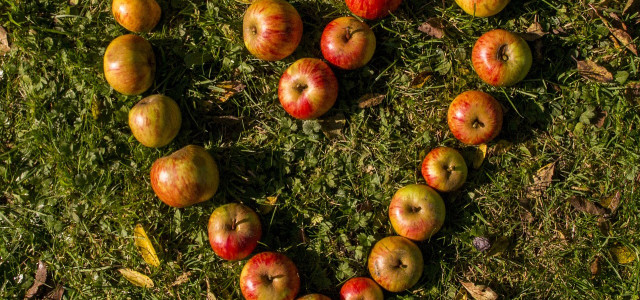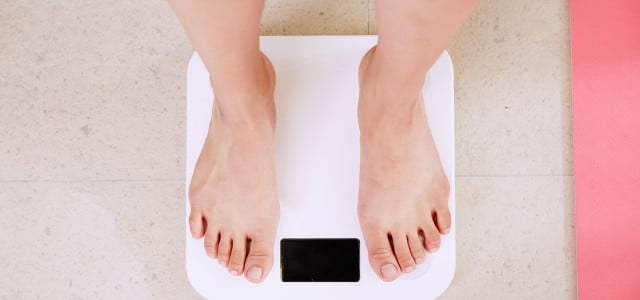Intuitive eating is a self-care eating philosophy that rejects diet rules and calorie counting. Learn more about the intuitive eating principles and how to make them work for you.
Intuitive eating is a holistic approach to other traditional diets. This eating philosophy stays away from guidelines regarding what to eat, when, and how much, and instead focuses on you and what your body needs and asks for. The intuitive eating principles are ten different guidelines to help people embrace this eating philosophy and to let go of external factors such as diet rules and calorie counting. This approach is focused on reconnecting you with your sense of hunger, fullness, satisfaction, and what feels good for your body.
One of the main benefits of this eating philosophy is the improvement of psychological health. According to a medical study, intuitive eating decreases symptoms of depression and anxiety and it improves your self-esteem, body image, and overall quality of life. In addition, other studies show that intuitive eating was associated with a more positive body image, and that women who practice intuitive eating are less likely to suffer from eating disorders.
The intuitive eating approach was created by two Registered Dietitians (RDs), Elyse Resch and Evelyn Tribole. They believed that the motivators for healthy eating habits should not be on diet restrictions and calorie counting. Instead, the focus should be on promoting healthy behaviors and improving your relationship with food. The goal with the 10 intuitive eating principles is to reflect on your hunger and levels of fullness, and how food makes you feel. Do you feel up for it? Then let’s dive in.
Intuitive Eating Principle #1: Reject the Diet Mentality
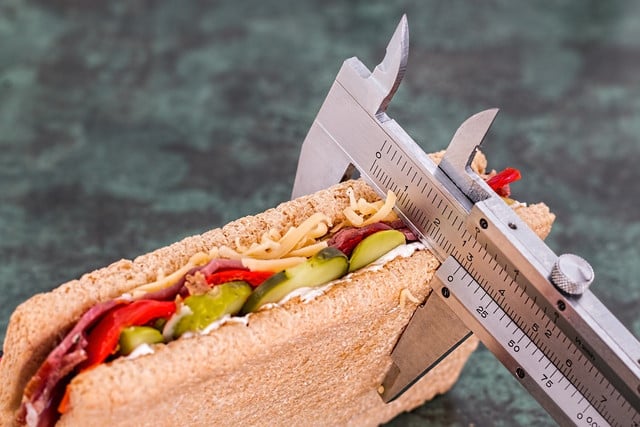
(Foto: CC0 / Pixabay / stevepb)
The first of the ten intuitive eating principles consists in rejecting the idea that there is a diet out there that would work perfectly for you. Many people who have tried to lose weight have already gone through diets for weight-loss. Whether these certainly help some people, they are usually not the long-term solution. Many magazines, websites, and self-help books sell the idea that weight can be lost easily and quickly, and it is easy to get caught up in this false hope. This often leads to the feeling of failure every time you try a diet that doesn’t work for you, or as soon as you start putting on more weight. This first principle encourages you to reject the whole concept of dieting, so that you can have room for a new approach: intuitive eating.
Intuitive Eating Principle #2: Honor Your Hunger



(Foto: CC0 / Pixabay / JillWellington)
The best way to honor your hunger is to keep your body fed with the energy it needs at all times. When you follow a diet or when you are trying to lose weight, hunger is often seen as something negative, when it really shouldn’t be. Keep in mind that hunger is not your enemy, it’s just your body telling you it needs some fuel. Overeating is common if you wait until you’re incredibly hungry to eat. This intuitive eating principle is one of the basic, necessary steps you’ll need to take if you want to follow this eating philosophy.
3. Important Intuitive Eating Principle: Make Peace with Food
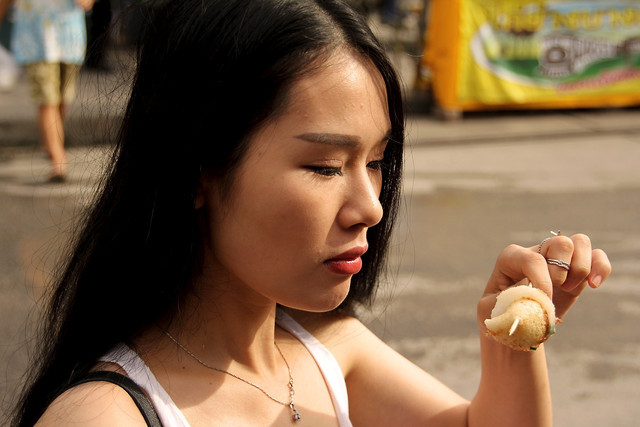


(Foto: CC0 / Pixabay / Daniel_Nebreda)
When you tell a child not to eat candy, all they want to do is eat candy. Why? Because human psychology shows that people want what they can’t have. The minute something is seen as forbidden, it becomes more appealing and attractive. The same thing applies to food; when you tell yourself you shouldn’t eat a certain food, it will lead you to craving it more than ever. This can often lead to overeating and even intense feelings of guilt. Take some time to make peace with all food, especially the ones you have deprived yourself from eating in the past and give yourself unconditional permission to eat.
4. Challenge the Food Police
“I shouldn’t eat carbs for dinner”, “I should skip dessert”, “That dish has a lot of calories, I don’t think I should have it”. Do any of these statements sound familiar to you? People trying to lose weight or someone with an eating disorder often have a constant battle with the voices in their heads praising them for being ‘good’ or ‘bad’ towards their diet plan. In this eating philosophy, these voices in your head are referred as the “food police”. This intuitive eating principle encourages you to challenge these voices through self-awareness. When you realize you are having these thoughts, tell yourself that these statements no longer serve you, and that you are deserving of any food without feeling guilty. Keeping the food police away is a critical step towards your intuitive eating practice. Next time it happens to you, be aware and mindful, and stay kind to yourself.
5. Discover the Satisfaction Factor



(Foto: CC0 / Pixabay / RitaE)
Pleasant fullness can be achieved when you find the pleasure and satisfaction not only in food but also in eating in a way that feels good to you. Eating is a basic human need; your body needs it to function properly. However, eating and enjoying food can also bring you plenty of satisfaction, and it is often overlooked. When you eat food you truly like and you bring awareness into your eating experience, you will be less likely to crave food or overeat.
6. Learn This Intuitive Eating Principle: Feel Your Fullness



(Foto: CC0 / Pixabay / silviarita)
The next step towards intuitive eating is to learn how to feel your fullness. Take some time to bring awareness and listen to your body signals when they are telling you that you are no longer hungry. Just like it is important to listen to your body when you are hungry, also trust it when it tells you that you are full. Once you discover the satisfaction factor, it will be easier for you to understand when you are pleasantly satisfied. This will help you realize when you should stop eating, before you become too full and experience physical pain. If you are new to this principle, you can start by asking yourself “How does the food taste?” and “What is my current hunger level at this moment?”
7. Cope with Your Emotions with Kindness



(Foto: CC0 / Pixabay / ShooInau)
Overeating or undereating are often the result of an emotional reason. Something important when healing your relationship with food is discovering and understanding the reason why you might be eating. If an emotional trigger is what’s causing you to eat, understand that it’s common to use food as a coping mechanism. However, once you become aware of the emotions that bring you to unnecessary eating, it will be easier to understand that food is not the most effective way to cope with your emotions. Be kind to yourself and try to be present and aware. This will help you identify what you might need in the moment; are you actually hungry, or are your emotions getting the best of you. If it’s emotion-based, remind yourself that food won’t fix any of those feelings, it will only distract you, and it may even make you feel worse in the long run.
8. Respect Your Body: A Vital Intuitive Eating Principle
It is no secret that all bodies are different. They all differ in height, shape, size, color, and weight. Accepting your body and respecting it is another important intuitive eating principle that will make a big difference on how you see yourself. If you respect and honor your body, you will feel better about who you are, and your journey with intuitive eating will be much easier too.
9. Movement – Feel the Difference



(Foto: CC0 / Pixabay / Pexels)
All-or-nothing approaches to physical activities are a no-go here. When the goal of exercise is weight loss, it’s easy to overexercise – however, just like following a strict diet, it is hard to keep up with those expectations in the long run. This intuitive eating principle encourages you to bring awareness to how movement makes you feel. Try to shift the focus from “I have to exercise daily” to “I like to get daily movement because my body appreciates it”.
10. Honor Your Health – Gentle Nutrition



(Foto: CC0 / Pixabay / silviarita)
We’ve talked about honoring your body and your hunger, but it’s also important to honor your health. Ensuring a nutritious diet boosts your immune system, nourishes your cells, and even improves your mental health. So, making food choices that honor your health is just another way of self-care. Gentle nutrition doesn’t mean eating perfectly healthy every single time; it’s about adopting eating habits that are consistent in the long run and that will make you feel good.
Intuitive Eating Principles and Sustainability
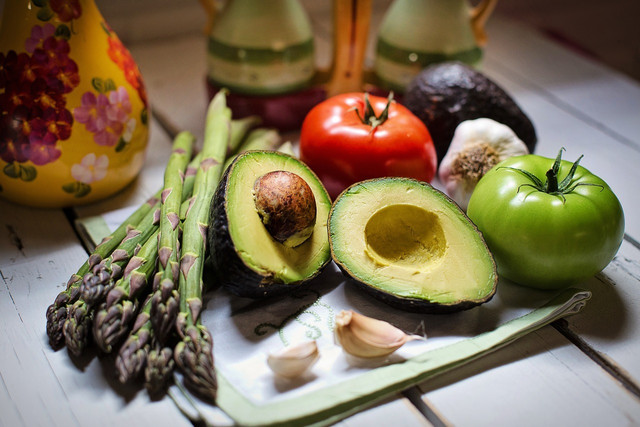


(Foto: CC0 / Pixabay / JillWellington)
Intuitive eating can often raise the question on whether this eating philosophy is compatible with veganism, vegetarianism, or even a regional or sustainability-focused diet. The intuitive eating principles can take place with different types of diets, depending on your preferences and choices. Even though going vegan or going vegetarian is a healthy way of eating, it can become one more restriction if it is embraced with the diet mentality. In other words, if you turn vegan with the purpose of losing weight, veganism is seen as a diet, which is what the intuitive eating approach is trying to avoid. On the other hand, if you decide to go vegan or vegetarian for your health or environmental and ethical reasons, it is a life choice that goes beyond any dietary restriction.
A sustainability-focused diet, such as the planetary health diet, can also be carried out if you practice intuitive eating. Just like veganism, eating sustainably is a lifestyle choice motivated by your personal values and ethics. If you choose to eat sustainably for ethical reasons such as to reduce your carbon footprint, or to reduce food waste, it is a personal choice that has nothing to do with restricting yourself from food you’d like to have but you force yourself not to have it.
In conclusion, plant-based and sustainability-focused diets can coexist with intuitive eating principles. If you implement your food choices correctly and you are aware of your true intentions, you can still become an intuitive eater.
However, if you have a history of eating disorders, or a bad relationship with food, check with your doctor or nutritionist before making any important shift to your diet. This will help you ensure you are taking the vitamins, proteins and minerals that your body needs at all times.
Read on:
- Nutrition Secrets: Foods That Are Good for Skin, Hair, and Nails
- Mindfulness Based Stress Reduction: Living in the Present
- Learning Self-Love: How to be Good to Yourself and Why it Matters
Important Information regarding Health-related Topics.
** Links to retailers marked with ** or underlined orange are partially partner links: If you buy here, you actively support Utopia.org, because we will receive a small part of the sales proceeds. More info.Do you like this post?






